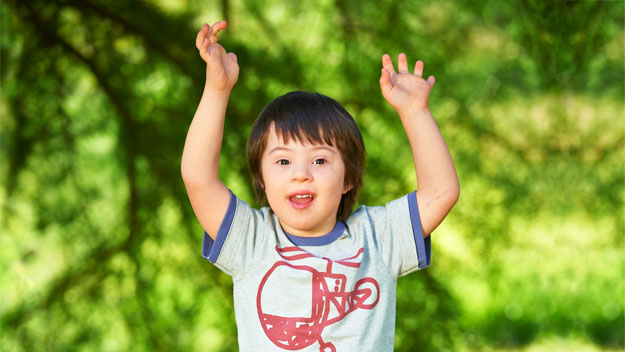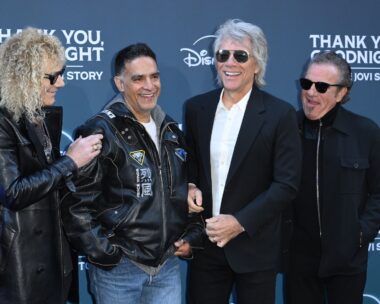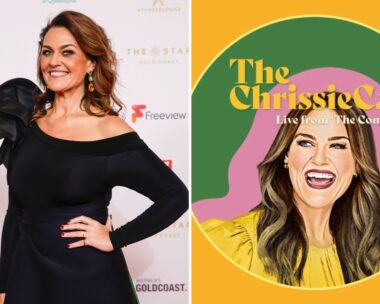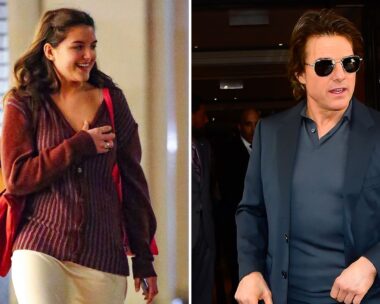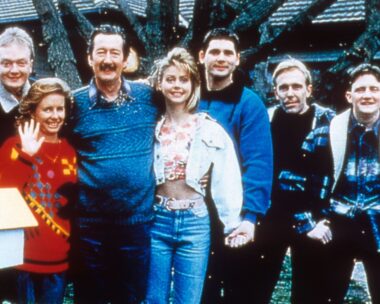Julius is like any three-year-old, energetic and curious. He is also a child model, which his mum, Catia Malaquias, hopes will challenge the negative stereotypes that come with his Down syndrome.
“Julius is going to be a model for eeni meeni miini moh, a children’s fashion brand, and the photo shoot is in Brisbane,” I said, responding to a question of why I was going to be away from Perth for a few days. The question that came next didn’t shock me, “So is it a photo shoot for children like him?”
You see, Julius, my adorable three-year-old rascal, has Down syndrome. The words “like him” were meant as a reference to children who, like Julius, are not, supposedly, “like other children”.
Related: Meet the newest Down syndrome supermodel
“The other children in the photo shoot don’t have Down syndrome and I haven’t actually met them, but I’m guessing they are probably cute like him,” I replied, with a smile.
As Julius’ mother, I don’t see him as particularly different. Like his two adoring sisters, five-year-old Laura and 18-month-old Drea, and like every other child, Julius is his own little person.
He is very cheeky, energetic and curious. He has personality and a unique set of talents. And he can be a handful or an angel, just like his sisters.
We are glad to be on this journey together and are immensely thankful for the gift of our family. That journey feels extraordinary, in some respects, but for the most part we are just a normal family living a typical life.
So, late one night, as I sat down to do some online shopping, I searched the faces of the beautiful children modelling eeni meeni miini moh clothes, hoping to see a child like Julius, but expecting that I wouldn’t.
I contacted eeni meeni miini moh and asked them to consider more deeply the children represented in their advertising and not to overlook the beauty and value of all kinds of children, including those that may present “differently”.
I asked them to consider that, as an advertiser, they have an opportunity to say something important in the way they market their product and that they say as much by including children like Julius as by not including them.
Before I knew it, Julius and I were boarding a plane to Brisbane. I had been quite anxious that they would reject my suggestion (it would hurt, as rejection always does), but found myself feeling intimidated at the thought of meeting the other mums and their “modlers”.
How would they react to us being there? And what if Julius threw one of those spectacular tantrums that only three-year-olds know how to throw?
As it turned out, the photo shoot was a wonderfully positive experience for everyone involved and Julius had a great time.
I will always treasure the memory of standing next to where Julius was being photographed watching all the staff, mums and children on the set singing, with wide grins on their faces, Julius’ favourite song, Happy Birthday.
Everyone was willing us on and Julius was beaming. And I was bursting with pride to see him doing so well.
It is also about children like Julius feeling validated by being seen in a positive way in the media.
What did I hope to achieve? I hope that when people see Julius’ image in the campaign, they will see a little boy having fun, looking cool and just being “part of it”.
Why is that important? Because it challenges the negative stereotypes and sends an important message: children like Julius are more like other children than they are “different” and they don’t have “special needs”, they have the same basic needs as any child — to be loved, nurtured, educated and to be included in society in every way and to every extent possible.
In pictures: The beautiful faces of Down syndrome
It is about lifting expectations of what society believes children like my son can dream for and achieve as valued members of that same society, not some parallel “special” society with “special people” doing “special things” in “special places”.
As I walked out of the photo shoot with Julius, the son I didn’t quite expect, but without whom I can’t imagine being, I knew that together and with the support, acceptance and understanding of all the people around us, he will do much more with his life than smile for the camera.
Read more of this story in the February issue of The Australian Women’s Weekly.

